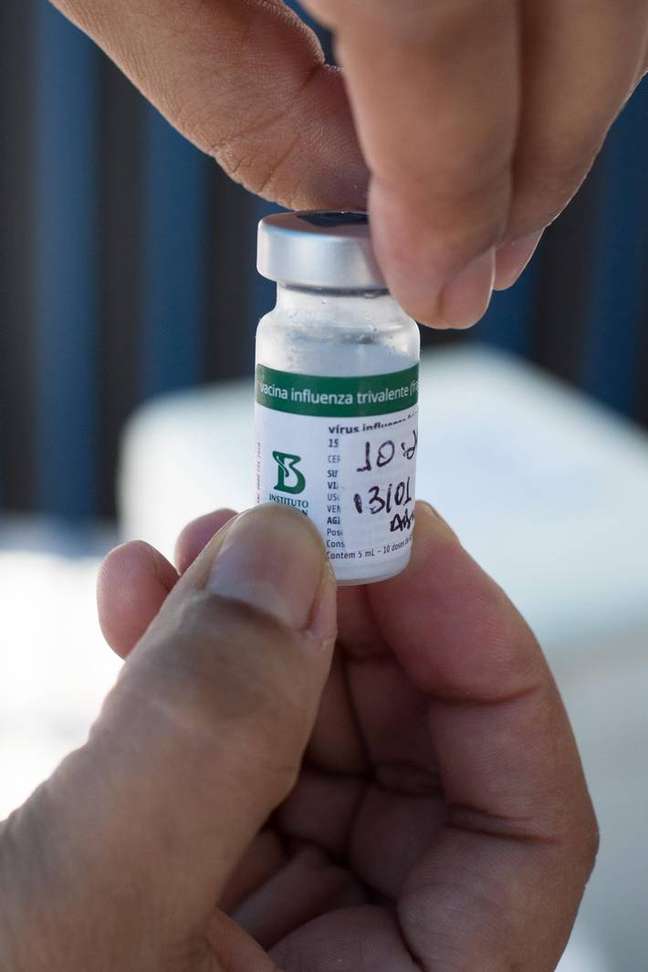Messenger RNA (mRNA) has been used successfully for the first time in vaccinations against the new coronavirus and has accelerated the search for the creation of therapies against some malignant tumors
RIVER – vaccines against some types of cancer it could be available by the end of the decade, according to the pair of scientists responsible for creating one of the most effective immunizers against COVID-19 developed during the pandemic.
Ugur Sahin and Ozlem Tureci are co-founders of BioNTech, the German laboratory that, in collaboration with Pfizer, has created a revolutionary vaccine against covid-19 based on messenger RNA. The same innovative technology is being researched to create immunizations against certain types of cancer.
In an interview with BBC’s Laura Kuenssberg last Sunday, Professor Ozlem Tureci recounted how the messenger RNA technology used in the Covid-19 vaccine can be redirected to induce the immune system to attack cancer cells (instead of invading coronaviruses). Asked when a cancer vaccine might hit the market, Ugur Sahin said: “Before 2030?

The targets are intestinal tumors and ailments
The German company is working on the development of cancer vaccines intestine And melanomas, among others. But there is still a long way to go, full of challenges, they said. Cancer cells that form tumors are made up of a wide variety of proteins, which makes it very difficult to create an immunizer that targets only the altered cells and not the healthy tissues.
Traditionally, vaccines are made with the very pathogen they intend to fight, in weakened or inactivated forms. In this way, the immune system is trained to recognize the invader and fight the infection when it actually occurs. This technology has been used successfully for decades to combat measles and polio, among many other diseases.
The new technology, completed during the covid-19 pandemic, consists of the use of micro-fragments of genetic material (in this case, mRNA) synthesized in the laboratory. In nature, mRNA translates instructions written in DNA and delivers them to protein producers within cells.
The new vaccines use synthetic mRNA to carry instructions on how to make the coronavirus spike protein. When the protein is made by the cells according to the instructions sent, it “trains” the immune system to recognize and fight it. That is, instead of taking fragments of the pathogen itself into the body, the new vaccines carry instructions for their production.
95% effectiveness.
The efficacy of these new immunizers against covid-19 was found to be over 95% even in the most vulnerable groups, such as the elderly. Furthermore, since it is a material synthesized in the laboratory, its production is much simpler than that of traditional vaccines. For all this, the new technology has marked, according to experts, a new era in the production of immunizations, paving the way for unprecedented therapies for cancer and heart problems.
The same technology can be used to stimulate the immune system to recognize and destroy cancer cells, the researchers explained. Instead of carrying instructions to make a fragment of the virus, the immunizer contains genetic instructions to create cancer antigens, proteins found on the surface of cancer cells. The big challenge is the huge variety of proteins.
BioNTech was already working on developing messenger RNA-based cancer vaccines before the pandemic, but ended up prioritizing Covid-19 immunizers in the face of the global emergency. Research has continued and the company currently has several cancer vaccines in clinical trials.
According to the experts told in the interview with the BBC, the development of vaccines against Covid (both Pfizer / BioNTech and Moderna) has contributed a lot to the work already being done against cancer. The work helped scientists produce large-scale vaccines and better understand how the immune system responds to mRNA.
“This will certainly accelerate our cancer vaccine work,” said Ozlem Tureci.
However, the researcher remains cautious. “As scientists, we are always reluctant to say we have a cure for cancer,” she said. “We have a number of important breakthroughs and will continue to work on them.”
+The best content in your email for free. Choose your favorite Earth Newsletter. Click here!
Source: Terra
Benjamin Smith is a fashion journalist and author at Gossipify, known for his coverage of the latest fashion trends and industry insights. He writes about clothing, shoes, accessories, and runway shows, providing in-depth analysis and unique perspectives. He’s respected for his ability to spot emerging designers and trends, and for providing practical fashion advice to readers.







